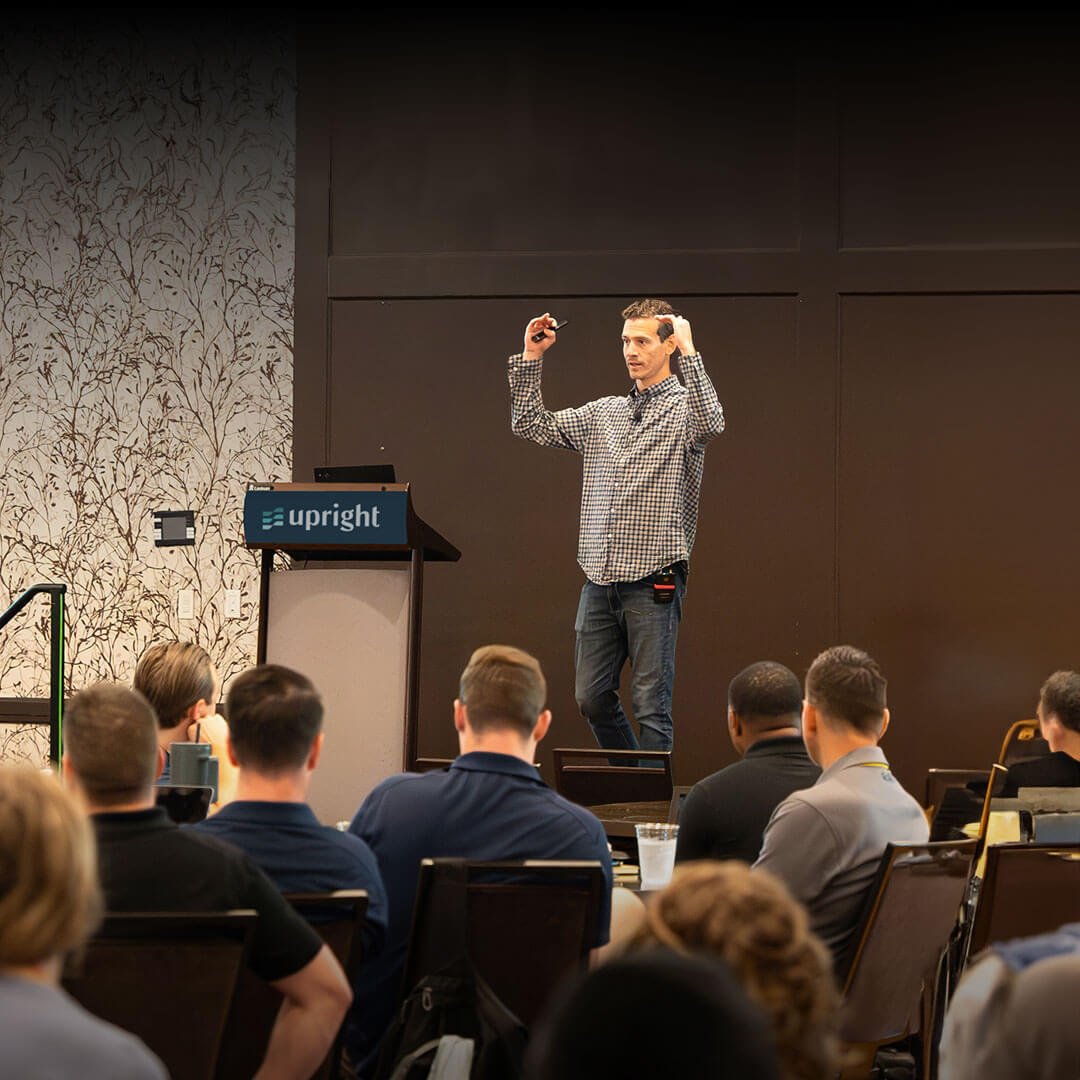
We get a lot of funding requests from people who are working on their first deal. Going from 0 projects to 1 project under your belt is hard. Most hard money lenders (Upright included) require some level of experience before they can fund a real estate deal. It’s a perfect catch-22: “How do I complete my first deal if I need funding and how do I get funding if most lenders require experience?”
Let’s break down how to get funding to flip a house, so as a first-timer you can get past the hardest hurdle in this business — completing deal #1.
Why do most lenders require prior experience?
It's important to understand why so many lenders require experience. So here’s our take:
1.) Experience tells us that you:
a.) have a team;
b.) understand your market;
c.) are capable of managing a project;
d.) have made and learned from past mistakes.
All of these things go a long way in reducing risk. We all like reduced risk.
2.) Lenders are busy. Really good lenders (which is what you want) typically have more projects to fund than we can handle. Generally speaking, new investors who aren’t familiar with the closing process are MUCH harder to work with and require twice the amount of time to get to the closing table. The return on time is difficult to justify.
3.) You're qualified. Having completed a few fix and flip projects indicates you’ve already figured out the hardest part of this business — getting your first deal funded. In a way, requiring experience is a way for lenders to separate out the wanna-be investors from those who are 100% committed to making this their career.
Factor for these three things and then consider that the lender likely doesn’t know you. You’re some random person that called or emailed and asked for hundreds of thousands of dollars. Yikes!
Do this instead of calling 100 lenders…
Agree with it or not, requiring experience does have some practical logic behind it. So how do you get from 0 to 1? From our experience (because many Fund That Flip employees were or are currently house flippers), here’s how it’s done — and it’s not particularly complicated. However, it does take time, strategy, execution, and above-all-else, commitment! So here we go.
1.) Network. Start with people who are in your (growing) network and build strong relationships. Get rid of that most critical objection of being the random person asking for hundreds of thousands of dollars. Be "trustworthy, professional, committed, well-polished fill-in-your-name-here” who can be entrusted with an investment. This takes time. This takes effort. This takes continual proof of doing what you say you’re going to do. Start this right now!
2.) Fake it till you make it. Develop an ideal real estate project. Make it up. Make it realistic based on the projects you see in your market. Create a sample investment package based on this made-up but realistic project and sell it to your trusted network. Get commitments to fund any project that looks similar to this one.
3.) Hunt and gather. Go find a real estate project that looks like the one you’ve already sold and have commitments for. Put it on contract. Yes, this takes an enormous leap of faith that your investors will come through. That's why you need to have more commitments than you actually need to close the real estate deal. And more importantly — you need people you trust. It’s a two-way street.
4.) Become an expert. As you’re searching for your first real estate project you should also be becoming a local market expert. Talk to realtors, contractors, lawyers, etc. Find people you can work with so you have your team in place when that first deal comes through. These should be people who can guide you through your first deal to make sure the process is smooth for your investor(s).
5.) Have capital. Be prepared to put some of your own money into the project. This is particularly important on the first few deals. Most rational investors are going to want to see that you have some money in the project, or "skin in the game."
6.) Execute and over-communicate Once the deal is closed, the only thing that matters is that you execute. You will make mistakes. Don’t hide them. The mistake is never as bad as the cover-up. Remember, the most important thing with investors is the trust you’re constantly building. Communicating good and bad will improve the trust between you and your investors. Mistakes will eventually become apparent and once they do, if not properly communicated, will eliminate all trust you’ve built.
7.) Forgo personal profit. Don’t worry about making much money on your first house flip. But make sure your investor makes money. Your primary goal for deal #1 is to get experience. Not to get independently wealthy. Too many people think real estate investing is a way to get rich quick. It’s not. It’s hard work. You might make the windfall on deal #1, and we hope you do make a profit on your first project — but that’s not your goal. Your goal is to get experience and make money for your investors so you can get more funding and do a second… third… fourth….
What do I need a lender for then?
You might wonder, “well what’s the point of finding a lender once I’ve got an investor network willing to fund my projects?” Very fair question. Lenders help you achieve three things:
1.) Scale. If you want to do more than four deals per year you’re going to need additional capacity. Unless you find some really deep-pocketed investors or hard money lenders, you’re going to need an institutional lender to help you scale up.
2.) Dependability. Most investors who fund your first few deals will not be in the business of lending money. They have other options and demands for their capital. They may be there for deal #1, but they'll have other obligations by the time you get around to deal #2 or #3. Specialized lenders will always be there for you once you have the required experience.
3.) Speed. Private investors move at their own pace, may need to liquidate other assets, are traveling when you need an answer, etc. Institutional lenders are always liquid and can move fast to get to the closing table. As you start to compete on more deals, speed is one of your best leverage points.
Closing thoughts.
Getting started in this business is incredibly difficult but can be done. Every real estate entrepreneur who is active today was in your shoes at some point. They figured it out and so can you. Understand what your strengths are. Do an internal inventory of what you have and what you need and get to work.
As a closing point, lenders are people too. As you’re doing your first few deals keep us updated. This will help us get to know you — remember that relationships really matter in this business! Once you have a few deals done, if we’ve followed your progress, we’ll be more inclined to help you sooner.
Resources to help you:
The Book on Flipping Houses – Check out this book by our esteemed advisor, J Scott, for the detailed roadmap to avoid mistakes on your journey.
Best Ever Online Lending Advice 1/2 – Listen to our best even advice on how to get funded as we're joined by a special guest.
Best Ever Online Lending Advice 2/2 – Listen to one of our esteemed real estate entrepreneur clients give his best ever advice on different ways to get funding.
Already an experienced real estate redeveloper?





